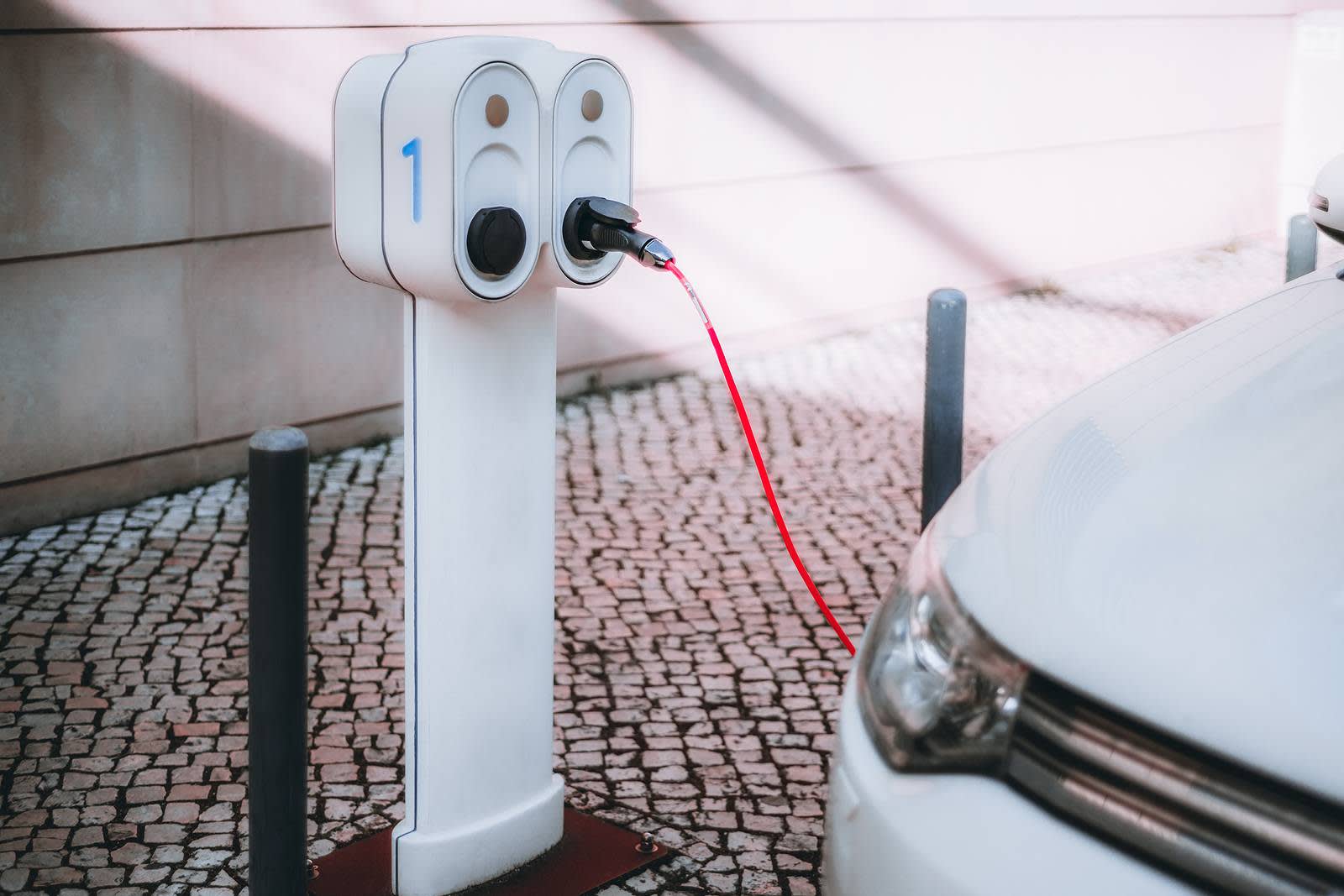Is it still economical to transition your fleet to electric vehicles?
Despite what you may think, high inflation and economic uncertainty make switching your fleet to electric vehicles (EVs) even more attractive. That’s because EVs still offer a lower Total Cost of Ownership (TCO) than Internal Combustion Engine (ICE) vehicles.

The UK urgently needs to decarbonise transport as part of our commitment to reach net zero by 2050. Transitioning to EVs forms a crucial part of that effort.
This’ll help us reduce carbon emissions. On top of that, it’ll help cut air pollution, which cuts short between 28,000 and 36,000 lives every single year in the UK.
These arguments have encouraged thousands of organisations to make the switch. That’s already helping to save lives and carbon emissions.
But in these challenging financial times, it’s worth remembering that this transition still makes sound economic sense, even when electricity prices rise.
An EV fleet can save money
Recent research proves that fleet managers could save £7,960 per vehicle over a seven-year period compared with similar ICE vehicles.
These savings come from the lower total cost of ownership of EVs compared with ICE vehicles. (Even better, they’re on top of savings provided by the support schemes detailed below.) These include:
Lower annual running costs for EVs compared with ICE vehicles
Most EVs tend to cost more to purchase outright than comparable ICEs. However, their running costs and the cost of maintenance can help make up for this differential.
Average annual running costs for EVs work out at around £1,147.21 compared to £2,201.58 for a petrol or diesel car. Across a whole fleet, that could quickly add up to a very substantial saving.
Savings from VED on EVs
Fully electric vehicles pay no vehicle excise duty (VED), which can lead to significant savings across an entire fleet. This includes vehicles costing over £40,000.
Lower maintenance costs for EVs
EVs have far fewer moving parts than ICE vehicles, so they’re easier to maintain. Car insurance provider LV has calculated that drivers can save almost £200 (£304 vs £498) annually on maintaining an EV compared to their conventional counterparts.
Lower price fuel for EVs
Charging an EV at home or at work’s cheaper in terms of pence per mile than charging an EV at public charge stations. And it’s cheaper than fuelling an ICE vehicle too.
And because of the ongoing energy crisis, the Government has implemented various business and domestic support schemes. These are protecting consumers by limiting the price of electricity, and therefore the cost to refuel your EV. This is equally true whether that electricity is used at home, at work, or comes from public networks.
How much does it cost to charge an electric vehicle?

How does driving an EV compare to driving a traditional vehicle?

Calculation uses BEIS 2022 emission data for medium sized diesel vehicle
When comparing an EV to a Diesel ICE cost per mile is still cheaper. Better yet, CO2 emissions per mile for an EV, when considering Scope 1 and 2 emissions, is zero.
Save more on EVs thanks to government incentives
These savings could be even greater when government incentives are added in. These cover everything from grants towards the initial purchase price to financial support for installing charging stations at your workplaces. However, grants will not be in place forever. Which makes it more important than ever to act promptly.
Check our latest summary of all grants, subsidies and incentives for electrification.
Grants towards the EV purchase price include:
Plug-in grant
The plug-in car grant was dropped in June 2022 as government funding was shifted to focus on charging and other vehicles. The following vehicle grants remain active:
Plug-in small van grant
35% of the purchase price, up to £2,500 (only available for a total of 1000 plug-in van and trucks for your business or organisation each year. This limit resets every year on 1 April).
Plug-in large van grant
35% of the purchase price, up to £5,000 (only available for a total of 1000 plug-in van and trucks for your business or organisation each year. This limit resets every year on 1 April).
Grants are also available for the following vehicle types:
- Wheelchair accessible vehicles
- Motorcycles
- Mopeds
- Taxis
- Small trucks
- Large trucks
Making the switch to EVs will require your organisation to install new infrastructure. You can also get government support for this.
Support installing EV charge points and infrastructure
Workplace Charging Scheme
Provides up to £350 per socket (40 sockets max) off the cost of a charge point and installation. Maximum possible grant of £14,000.
Tax relief for electric charging points
EV charge points may be eligible for the super-deduction, announced during the Spring Budget 2021. Because charge points are considered plant and machinery, businesses can claim for capital allowances, such as the 130% super-deduction, for investment in electric charge point equipment.
This allowance will run from 1st April 2021 until 31st March 2023.
First Year Allowance for Electric Vehicles Charge Points
The government will also legislate in the Spring Finance Bill 2023 to extend the 100% First Year Allowance for electric vehicle chargepoints to 31 March 2025 for corporation tax purposes and 5 April 2025 for income tax purposes.
Time to make the switch to EVs
If you’re convinced by the environmental, health and commercial arguments to make the transition to an EV fleet, then it’s important to move fast. Remember, the super-deduction for charging point equipment is scheduled to end on 31 March 2023. So this really is the ideal moment to switch your fleet.
To find out how you can make the transition to an EV fleet, get in touch using the form below.
Get in touch

